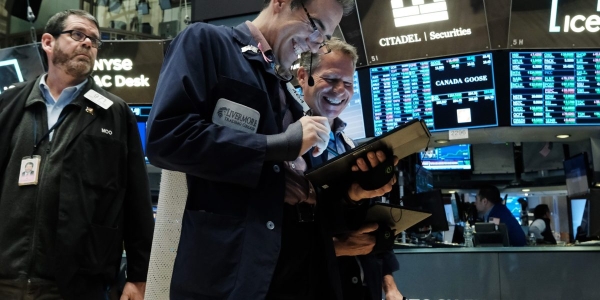
Many of the world’s largest investment banks have warned throughout 2023 that the stock market is vulnerable to a downturn as the Federal Reserve continues its battle with inflation. But despite the pessimistic forecasts and rising interest rates, the S&P 500 has returned more than 8% to investors this year and the economy has been remarkably resilient. The Federal Reserve Bank of Atlanta now expects U.S. GDP growth to hit 2.5% in the first quarter after the unemployment rate remained near a record low in March at 3.5%. As a result, some Wall Street veterans are turning bullish.
James Demmert, founder and chief investment officer of investment firm Main Street Research, which manages roughly $2 billion in assets, told Fortune Monday that he believes stocks are in “the last phase of the bear market and investors should be wading into great companies that sell at reasonable valuations.”
“The bear [market] is almost over, and a new exciting bull market awaits in the second half of 2023,” he said, pointing to potential in technology stocks in particular.
After a 30% plunge in last year, tech stocks mounted a recovery in 2023, but Demmert warned that there are still risks in the sector, and plenty of overvalued equities. Some investors might even be “overly optimistic” about the potential for the Fed to boost tech shares by cutting interest rates, he said. But that doesn’t mean there aren’t tech companies worth owning. Demmert expects many big tech companies, including Apple and Microsoft, along with cybersecurity stocks, to meet or surpass their earnings expectations this year even amid economic uncertainty.
“We think all investors should have a list of attractive technology stocks that are reasonably priced and allocate some cash to tech stocks,” he said, adding that now is the time to buy any market dips.
However, Demmert cautioned that big tech companies “should not be lumped together,” noting that Amazon trades at nearly 80 times its earnings and remains overvalued. The CIO said investors should focus on finding companies that trade at attractive price/earnings ratios and have “moats” that will enable them to deliver “consistent earnings into a contracting economy” instead.
Berkshire Hathaway chairman Warren Buffett famously coined the term “economic moat” in a 1995 shareholder meeting. It refers to a company’s ability to maintain a competitive advantage over its peers through scale, technological expertise, high startup costs, or some other factor. Or as Buffett put it in a 1999 Fortune article:
“The key to investing is not assessing how much an industry is going to affect society, or how much it will grow, but rather determining the competitive advantage of any given company, and above all, the durability of that advantage. The products or services that have wide, sustainable moats around them are the ones that deliver rewards to investors.”
Demmert isn’t alone in his bullish outlook for stocks that are surrounded by moats either. Bank of America equity strategist Savita Subramanian laid out 10 reasons to be optimistic about the near-term prospects of stocks in a Monday research note. She explained that the market tends to rally during the summer; the economy has seen strong productivity gains, “which bodes well for margins”; and private equity firms have built up a near record $2.2 trillion in “dry powder” amid the bear market that they could use to buy stocks, which should boost share prices.
And amid concerns over a potential recession, Subramanian told investors not to worry, the Fed has the ability to “soften the impact” through rate cuts. “Recession, shmecession,” she wrote. “Own stocks over bonds.”






